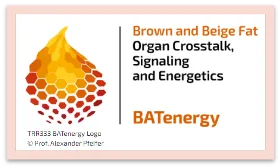Ice bathing is associated positive health effects. For this reason, our PhD student Alexander Braunsperger investigated the effects of ice bathing as part of our SFB-project ExBAT.
Time-of-day effects on metabolism have mainly been studied in relation to meals and exercise. So far, no studies have investigated these effects after an ice bath in humans, which presumably modulates similar pathways as diet and exercise. Known physiological responses to cold-water immersion comprise, e.g. an increase in plasma noradrenaline and decrease in plasma cortisol. Also, application of a cold stimulus increases whole-body thermogenesis and the breakdown of stored fatty acids in mice, however this has not yet been demonstrated in humans. Further, it is unclear if circadian rhythms alter the blood lipid response to an ice bath.
To fill the discussed gaps in our knowledge, we designed an exploratory human physiology experiment to test the hypothesis that time-of-day affects the blood levels of noradrenaline, adrenaline, cortisol and the blood lipidome at rest and after an ice bath. The aim of our study was to generate experimental data to answer the following three questions:
- Do blood hormone concentrations differ in response to a 5-minute ice bath in the morning or evening?
- Can we observe differences between women and men with the limitation of a small sample size?
- Do blood lipid class composition and lipid concentrations differ in response to a 5-minute ice bath in the morning or evening?
If you want to read more about the study, you will find the paper in Nature Scientific Reports.
Reference:
Braunsperger A, Bauer M, Brahim CB, Seep L, Tischer D, Peitzsch M, Hasenauer J, Figueroa SH, Worthmann A, Heeren J, Dyar KA, Koehler K, Soriano-Arroquia A, Schönfelder M, Wackerhage H. Effects of time-of-day on the noradrenaline, adrenaline, cortisol and blood lipidome response to an ice bath. Sci Rep. 2025 Jan 8;15(1):1263. doi: 10.1038/s41598-025-85304-8. PMID: 39779795

